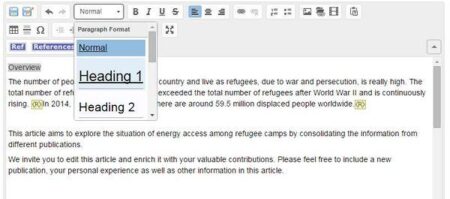Supreme Court Upholds Trump’s Controversial Deportation Policy, Permitting Transfer of Migrants from Djibouti to South Sudan
In a significant legal ruling, the Supreme Court has affirmed the Trump administration’s authority to deport migrants held in Djibouti to South Sudan, a decision that has prompted fierce debate among immigration advocates and political observers. This ruling, which aligns with the former president’s stringent immigration policies, raises complex questions about human rights, international asylum obligations, and the broader implications for U.S. migration practices. As the allocation of resources and responsibilities for displaced individuals comes under scrutiny, the decision marks a pivotal moment in the ongoing discourse surrounding immigration and refugee policies in the United States.
Supreme Court Decision Paves the Way for Controversial Migrant Deportations from Djibouti to South Sudan
The recent Supreme Court ruling has sparked significant debate regarding the administration’s approach to immigration policy, particularly concerning the deportation of migrants currently held in Djibouti. Advocates for human rights have expressed deep concern over the implications of this decision, highlighting a multitude of issues surrounding the treatment and rights of these individuals. Critics argue that the move to send migrants to South Sudan, a country marked by ongoing conflict and instability, could endanger lives and infringe upon international norms governing refugee treatment.
Supporters of the ruling contend that it reinforces the administration’s commitment to stringent immigration enforcement and sovereignty. Key points in favor of this decision include:
- Deterrence of illegal immigration: Proponents believe that facilitating deportations sends a strong message to potential illegal entrants.
- National security: Ensuring border security is a priority, and deportations are viewed as a necessary measure against potential threats.
- Resource allocation: Supporters argue that funds should be allocated towards domestic issues rather than maintaining facilities housing undocumented migrants.
This ruling may lead to a substantial increase in deportations as the administration seeks to act swiftly on enforcement. The humanitarian implications remain to be seen, as many refugees fear returning to a precarious environment that may compromise their safety. As discussions unfold, both sides prepare to navigate the legal landscapes shaped by this significant Supreme Court decision, which may redefine how the U.S. approaches immigrant detentions and deportations moving forward.
Implications for Human Rights and International Law in the Wake of the Ruling
The Supreme Court’s recent decision allowing the deportation of migrants detained in Djibouti to South Sudan poses significant implications for human rights and international law. Critics argue that this ruling undermines long-established protections for asylum seekers, raising concerns about the legality of sending individuals to a country with a documented history of human rights abuses. Legal experts warn that this precedent may embolden similar actions by governments, leading to a potential erosion of the international legal framework designed to protect vulnerable populations.
In light of this ruling, several key considerations have emerged:
- Potential Violations of Refugee Rights: The transfer of migrants to South Sudan could violate the principles outlined in the 1951 Refugee Convention, particularly the non-refoulement principle which prohibits returning individuals to a country where they may face persecution.
- Impact on Asylum Processes: This decision may incentivize other nations to adopt stricter migrant policies, potentially creating a ripple effect that could further restrict asylum opportunities globally.
- Legal Challenges Ahead: Human rights advocates are likely to mount legal challenges against this ruling, which could lead to prolonged battles in courts regarding its compatibility with both domestic and international law.
Recommendations for Policy Reform Amidst Rising Tensions and Humanitarian Concerns
The recent Supreme Court ruling permitting the deportation of migrants detained in Djibouti to South Sudan has ignited significant debate regarding the effectiveness and morality of current immigration policies. Many advocacy groups are calling for immediate reform to address the humanitarian crisis and the dangers migrant populations face. As tensions rise, lawmakers must consider a series of robust recommendations aimed at creating a more compassionate and effective immigration system. Key reforms could include:
- Enhanced Asylum Processes: Streamline applications to ensure individuals fleeing violence find refuge more quickly.
- Improved Legal Protections: Establish comprehensive legal support systems for migrants to facilitate their rights and safety during proceedings.
- Collaborative International Agreements: Work with nations hosting displaced populations to provide shared solutions to the crisis.
- Increased Humanitarian Aid: Boost funding to NGOs that support migrants and address immediate needs.
Furthermore, the implications of this ruling extend beyond the courtroom, affecting countless lives across borders. Legal experts and migration specialists emphasize the need for transparent dialogue between governments and stakeholders. A proposed framework for reform might include:
| Focus Area | Proposed Action |
|---|---|
| Migrant Safety | Establish safe zones to protect vulnerable populations from violence. |
| Support Systems | Implement community programs to integrate migrants safely. |
| Monitoring Deportations | Ensure independent oversight during deportation processes. |
In Retrospect
In a significant ruling, the Supreme Court has cleared the way for the Trump administration to proceed with its controversial plan to deport migrants held in Djibouti to South Sudan, a decision that has sparked considerable debate and concern among human rights advocates. As implications of this ruling reverberate across the immigration landscape, critics warn of potential humanitarian crises, citing the challenges that await deportees in a country already grappling with ongoing conflict and instability. Proponents of the policy argue it is a necessary step towards deterring illegal immigration and safeguarding national interests. As the situation develops, all eyes will be on both the legal repercussions and the humanitarian impact of this decision. Stay tuned for further updates as this story unfolds.







